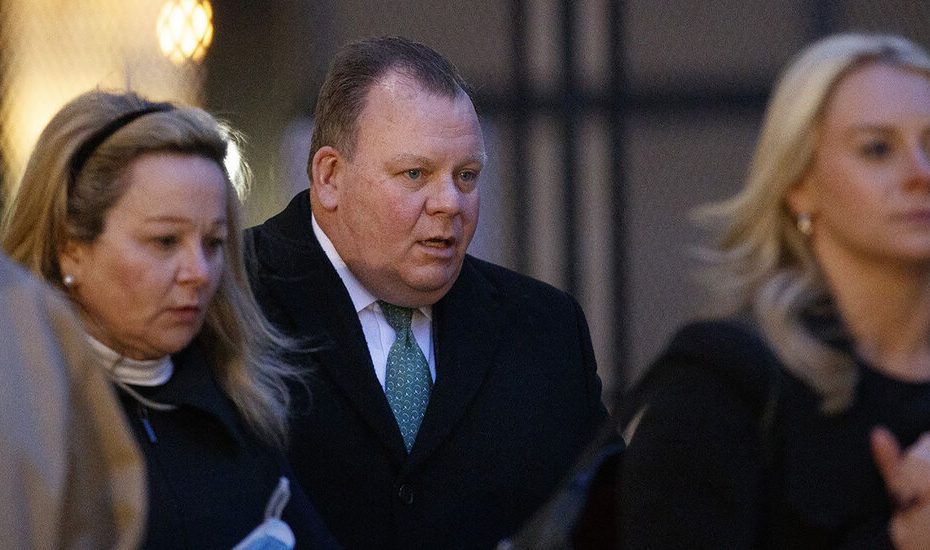In a lively argument at the Supreme Court on Tuesday that included references to cookies, cocktails and poisonous mushrooms, the justices tried to find the line between misleading statements and outright lies in the case of a Chicago politician convicted of making false statements to banking supervisors.
The case involved Patrick Daley Thompson, a former Chicago alderman who is the grandson of one former mayor, Richard J. Daley, and the nephew of another, Richard M. Daley. He admitted misleading regulators but said his statements fell short of the outright falsehoods he said were necessary to make them criminal.
The judges bombarded the lawyers with colorful questions that attempted to clarify the difference between false and misleading statements.
Chief Justice John G. Roberts Jr. asked if a motorist stopped on suspicion of driving under the influence, said something false by stating that he had drunk one cocktail, forgetting that he had also drunk four glasses of wine.
Caroline A. Flynn, a lawyer for the federal government, said a jury could find the statement false because “the officer asked for a full account of how much the person had drunk.”
Judge Ketanji Brown Jackson asked about a child who admitted to eating three cookies when she ate 10.
Ms Flynn said context mattered.
“If the mother said, 'Did you eat all the cookies,' or 'how many cookies did you eat,' and the child says, 'I ate three cookies' when she ate ten, that's a false statement,” says madam. Flynn said. “But if the mother says, 'Have you eaten cookies,' and the child says three, that is not an understatement in response to a specific numerical inquiry.”
Judge Sonia Sotomayor asked whether it was incorrect to label poisonous mushrooms as “one hundred percent natural.” Ms. Flynn did not give a direct answer.
The case before the court, Thompson v. United States, No. 23-1095, began when Mr. Thompson took out three loans from the Washington Federal Bank for Savings between 2011 and 2014. The first, for $110,000, he used to fund a law firm. He used the next loan, of $20,000, to pay a tax bill. He used the third, for $89,000, to repay a debt to another bank.
He paid off the loans once in 2012, for $390. The bank, which did not press him for further payments, went bankrupt in 2017.
When the Federal Deposit Insurance Corporation and a loan servicer it hired demanded repayment of the loans plus interest, amounting to approximately $270,000, Mr. Thompson told them that he had borrowed $110,000, which was true in a narrow sense, but incomplete.
After negotiations, Mr. Thompson repaid the principal in 2018, but not the interest. More than two years later, federal prosecutors charged him with violating a law that makes it a crime to “make a false statement or report” to influence the FDIC.
He was convicted and ordered to pay back the interest, which amounted to approximately $50,000. He was in prison for four months.
Chris C. Gair, a lawyer for Mr. Thompson, said his client's statements were accurate in context, a claim that was met with skepticism. Judge Elena Kagan noted that the jury had found the statements were false and that a ruling in Mr. Thompson's favor would require a court to find that no reasonable juror could have reached that conclusion.
Justices Neil M. Gorsuch and Brett M. Kavanaugh said the issue was not within the jurisdiction of the court, which had agreed to decide the legal question of whether federal law, generally, covered misleading statements. Lower courts, they said, could decide whether Mr. Thompson was rightly convicted.
Judge Samuel A. Alito Jr. asked for an example of a misleading statement that was not false. Mr. Gair, making his first Supreme Court argument, responded by talking about himself.
“If I go back and change my website and say '40 years of trial experience' and then say 'Supreme Court attorney' in bold capital letters,” he said, “after today that would be a true statement. It would be misleading to anyone thinking about hiring me.”
Judge Alito said such a statement was at best mildly misleading. But Judge Kagan was impressed.
“But it's the most humble answer I've ever heard from the Supreme Court podium,” she said, laughing. “So a good show on that.”

